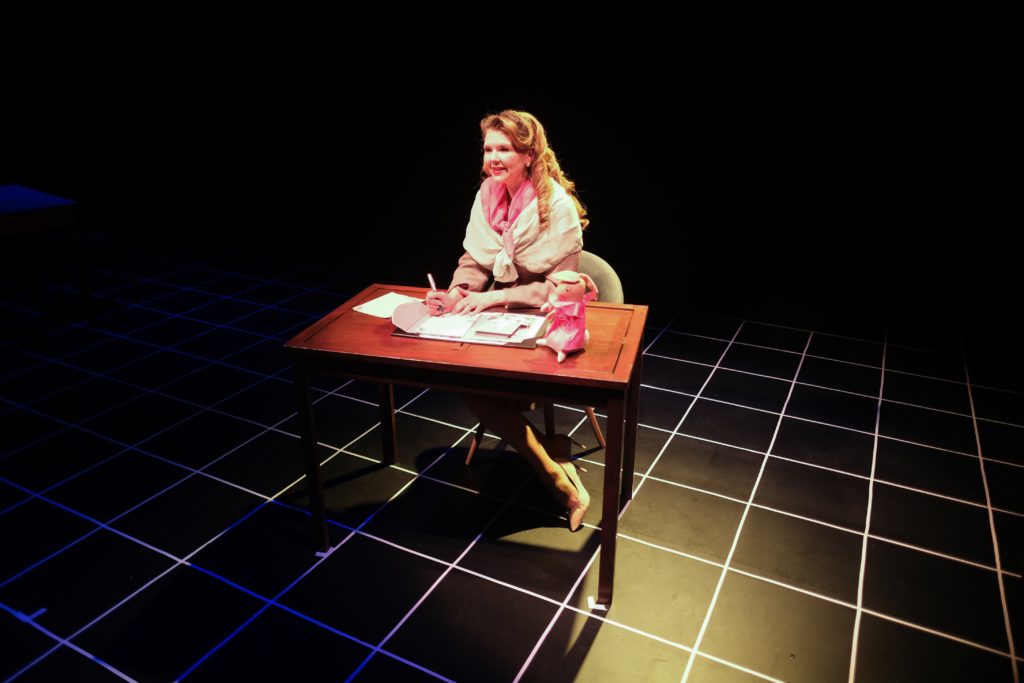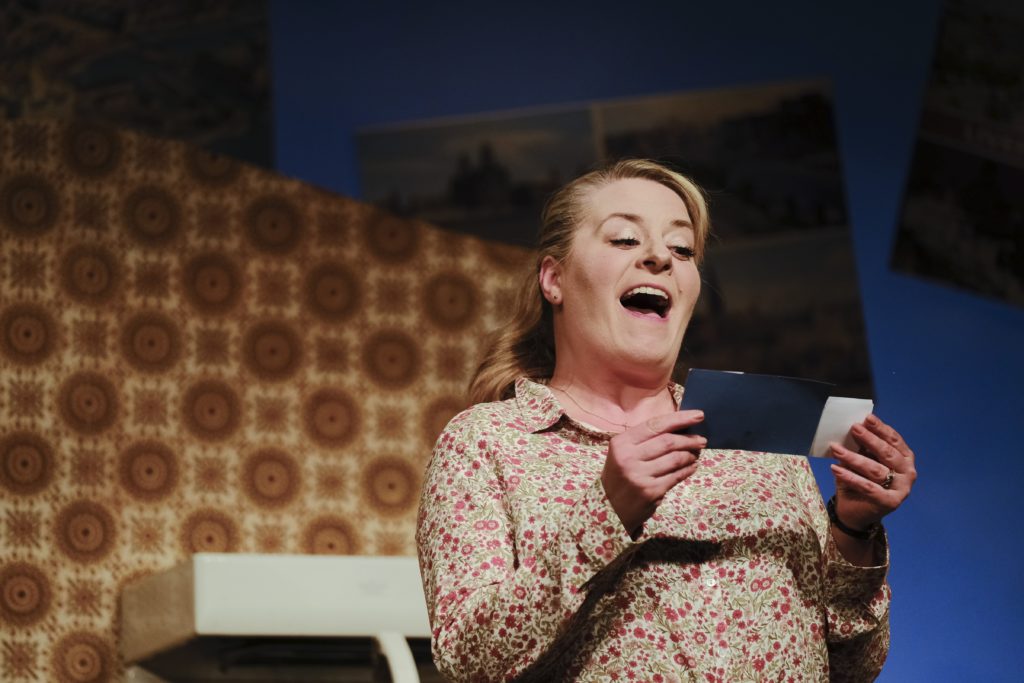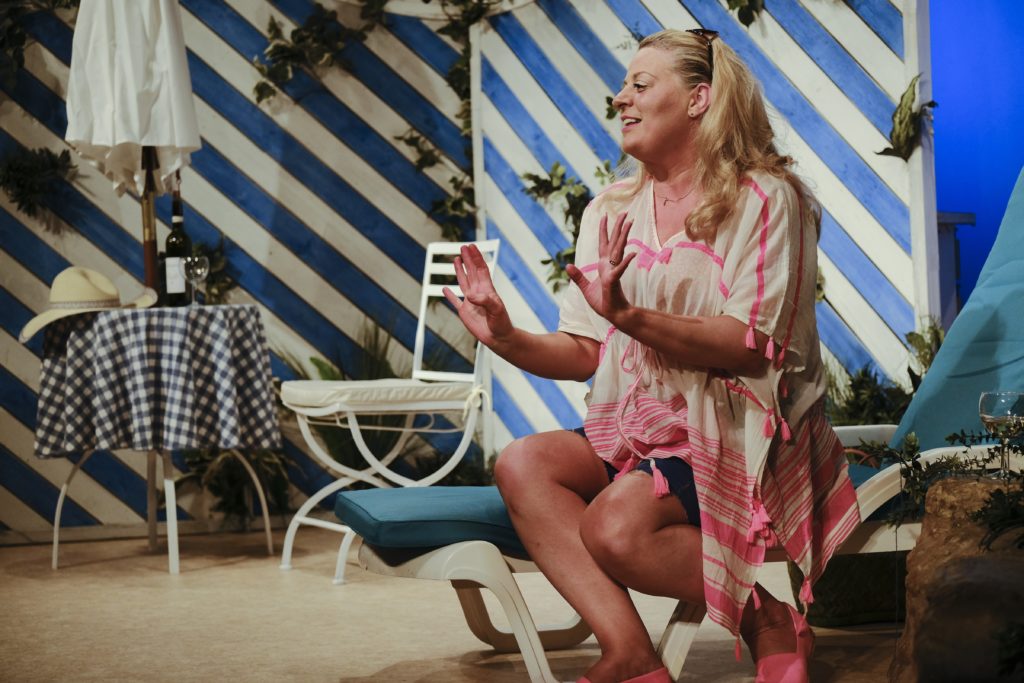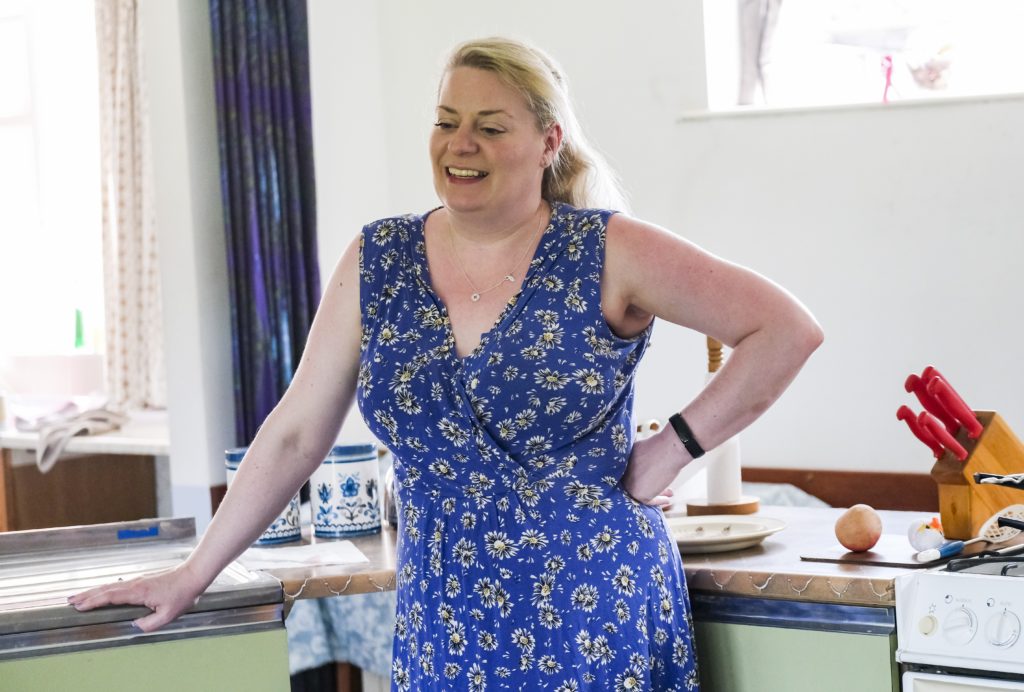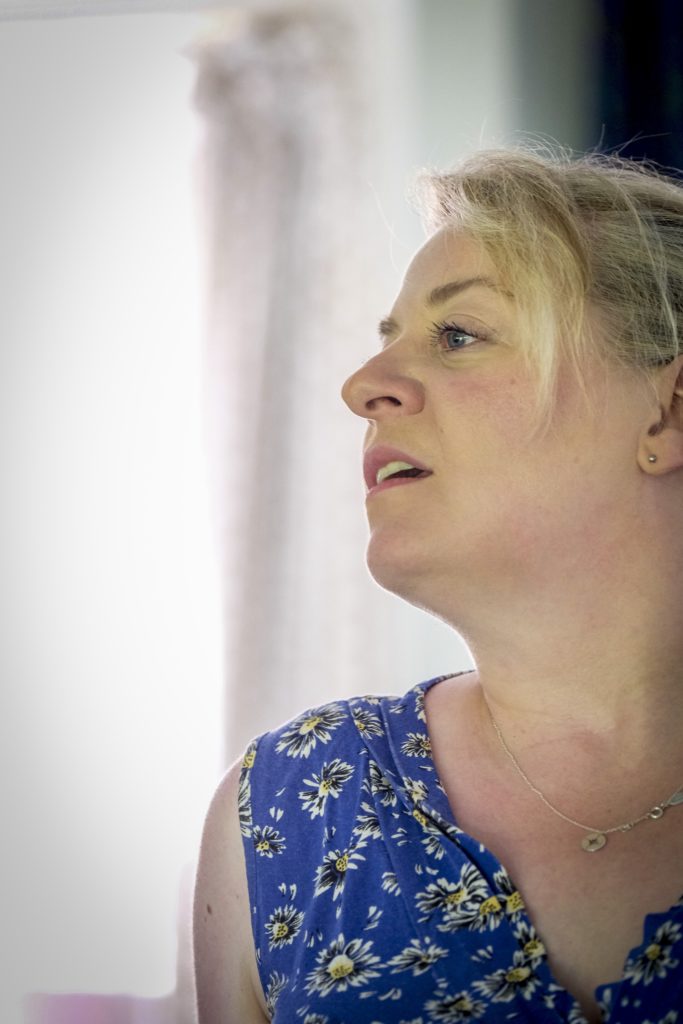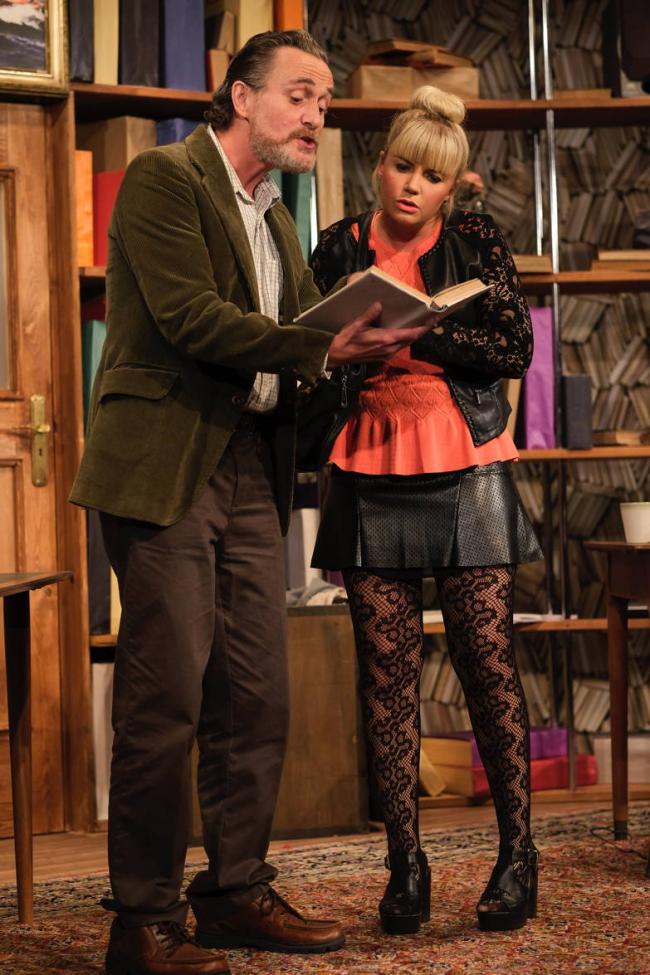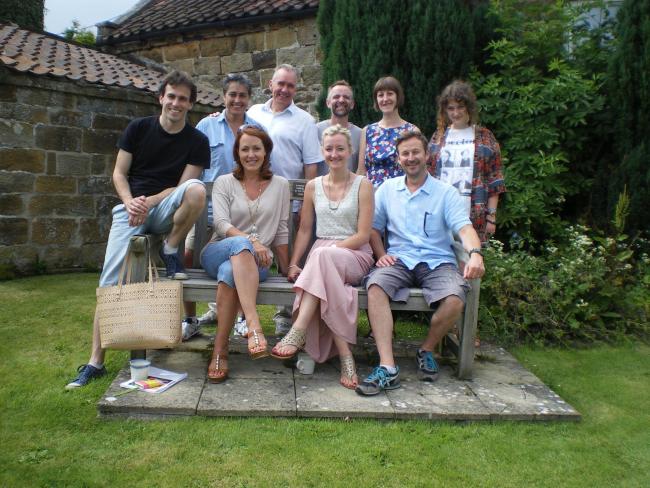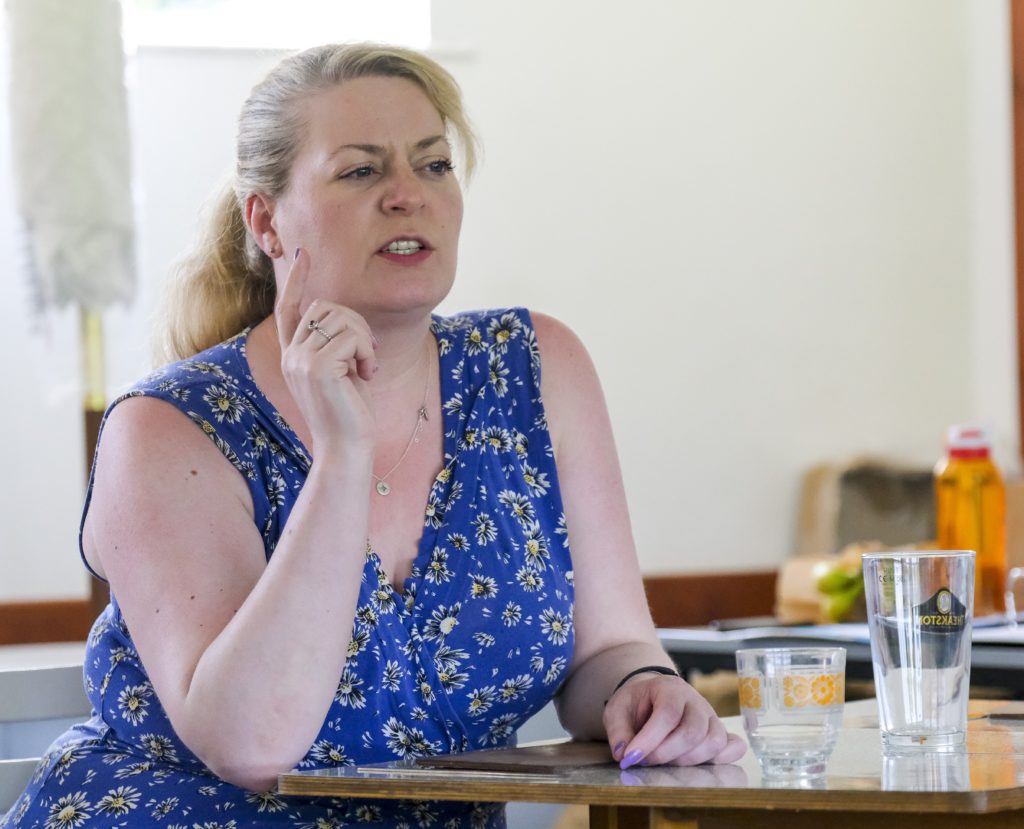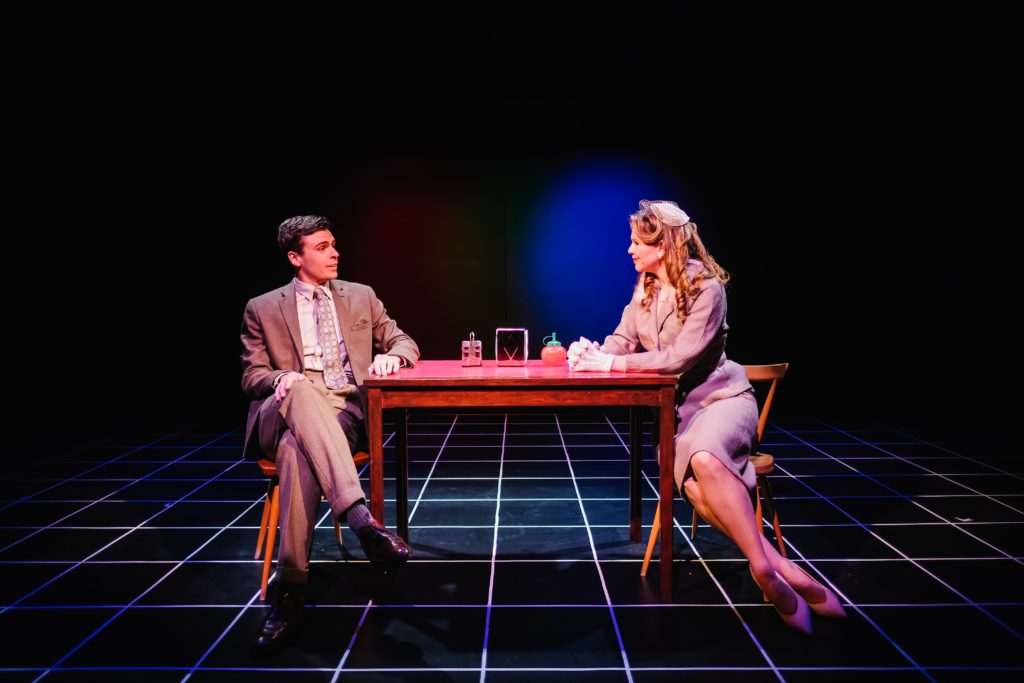
ALAN Ayckbourn wrote five plays in the lockdown lull for live theatre, says Esk Valley Theatre director Mark Stratton. Or six, according to Sheila Carter, when CharlesHutchPress chatted with the producer pre-show.
Is it five? Or is it six? What’s the truth? Well, All Lies is definitely Scarborough knight Sir Alan’s 86th full-length play, soon to be followed by his 87th, Family Album, opening at the Stephen Joseph Theatre on September 2.
His 84th, Anno Domino, took the form of an audio play performed by Ayckbourn and his wife, Heather Stoney, in an online fundraiser for the SJT during the first 2020 lockdown, and later that year he played three principal roles in an online audio reinvention of Haunting Julia.
Why mention this? Because All Lies equally would have suited being presented as a radio play, given its somewhat static style of performance, where the focus falls on the to and fro of letters until the finale when the play’s young lovers are seen sitting together for the first time, albeit at opposite ends of a coffee-bar table.
For so long a supporter of Esk Valley Theatre’s small-scale but highly professional summer productions in a village hall on the North York Moors, writer-director Ayckbourn offered All Lies to Stratton and Carter to complement the initial May run at The Old Laundry Theatre, Bowness, with Stratton taking on the assistant director’s role for the EVT run.
In tight, Covid-shadowed financial times, it fitted the bill with its cast of three and shared costs, and not least the kudos of staging an Ayckbourn world premiere. As ever, EVT devotees have been turning up by the busload, on this occasion for an enjoyable triangular drama, but not one with Ayckbourn’s usual visual flair.
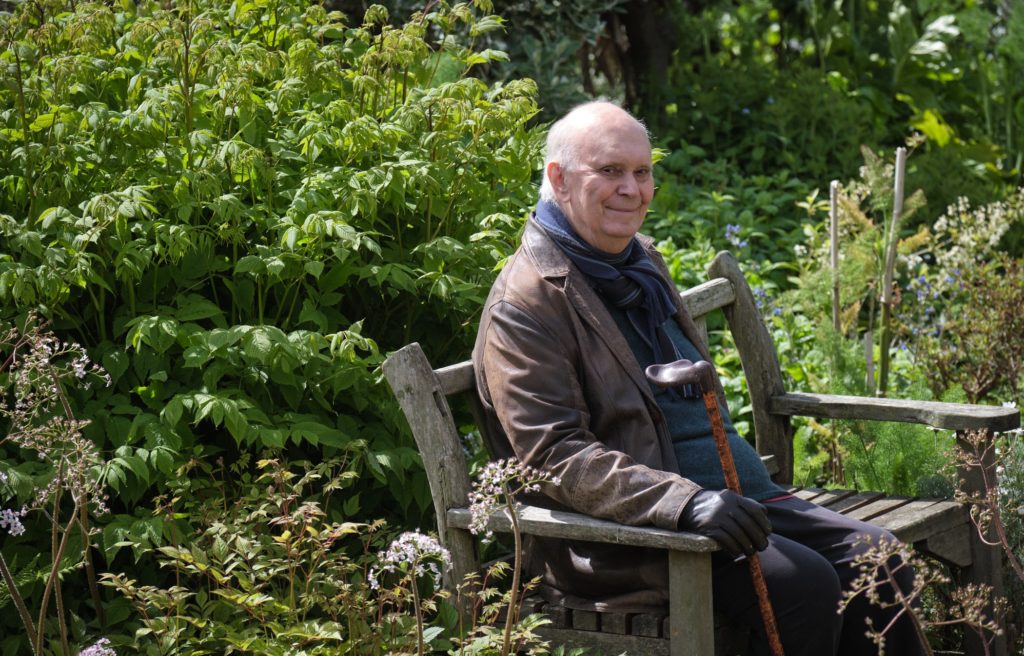
Roger Glossop’s set design amounts to three chairs, each facing the audience, two to the side at the front, the other central and raised, at the back. They look socially distanced, but that feeling may just be a hangover from Covid restrictions.
Here, the magical flourishes and application of the imagination must come from Luke Dayhill’s Sebastian Goodfellow and Saskia Strallen’s Posy Capstick, who both gild the lily when trying to present the best of themselves to each other. Or tell little white lies, if you you want to be brutally honest.
In Ayckbourn’s sparse presentation, they are not shown doing this directly to each other, but in letters that they read out as they write them: Posy to a friend; Sebastian to his frank, eventually exasperated family-outcast sister Sonia (Rhiannon Neads, occupier of the central third seat), who in turn shares her thoughts with sceptical, scathing gay lover Bobbie and then responds to Sebastian.
Letters, you say? Yes, the setting is 1957-1958, when people still took to pen and paper. It puts the emphasis on the verbal on stage, with Ayckbourn letting the audience enjoy being one step ahead of the two young lovers, later joined by the letters’ recipients being likewise.
Ayckbourn is writing in the age of fake news, Trumipian alternative truths, Johnsonian obfuscation, social-media misinformation, government disinformation. “The sad thing is there’s a lot of lying going on these days,” he says in his programme notes.
Ayckbourn has always been about truths, home truths, especially about the domestic lie of the land. Hence, rather than “the massive lies (allegedly) told every day by presidents and prime ministers”, he focuses on “those harmless, rather pathetic little everyday lies we tell, usually about ourselves, to improve our image”.
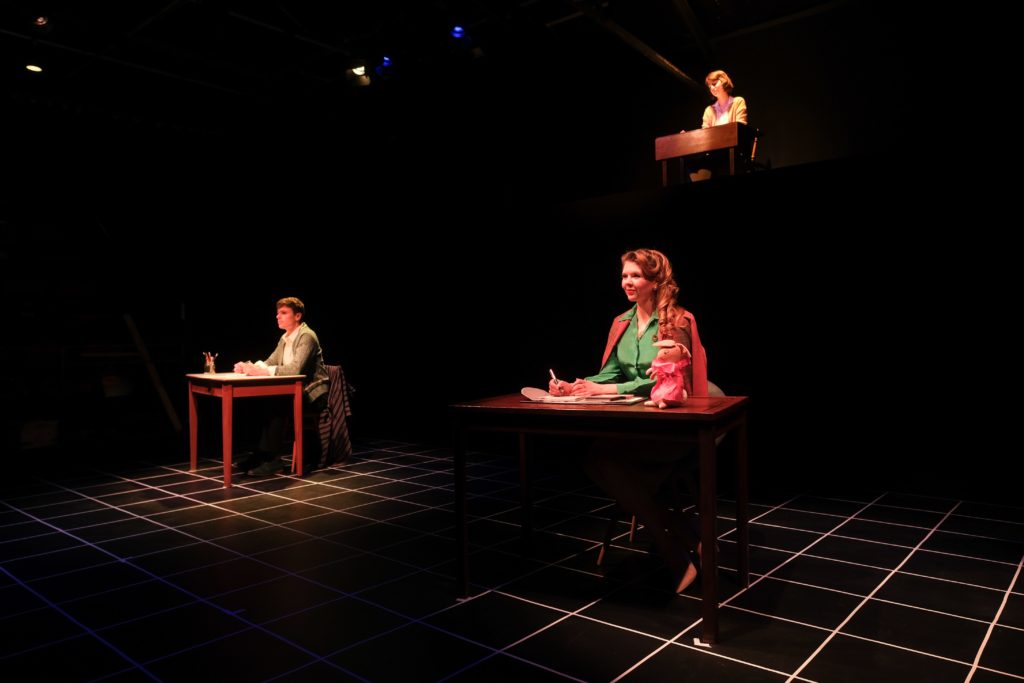
Today, that “slight make-over” would involve photoshopping pictures on social media or falsehoods on (Love Me) Tinder. In 1957, the “unattainable handsome boy”, Sebastian Goodfellow, and “the unreachable beautiful girl”, Posy Capstick, do it brazenly face to face, although we see it only in reportage, in those letters, before the curtain falls on chair number three.
The effect is somewhat distancing, keeping the characters at one step removed until the wit, wisdom and warmth of Ayckbourn’s ever-astute writing permeates the rigid surface, as he weighs up the pros and cons of lies, whether they can ever be innocent or are destined to haunt you.
This is not one of his darker pieces, nor one of his more substantial works, but a sage one with a note of forgiveness and understanding, one with a smile on its face, a lightness of step, as lie trumps lie, after Posy’s Last Night of the Proms outing turns into a first night of a new romance with trouser salesman Sebastian, who claims to be a cellist with the Halle Orchestra and later a spy. He bluffs, she bluffs, and the lies become ever more elaborate, but ultimately these love birds are naughty but nice.
“The truth is out there somewhere,” says Ayckbourn, but is the truth in there too in All Lies?In this instance, love is more powerful than all the nervous, desperate-to-please fantasies the lovers spin. Does that ring true? You decide, but how lovely to see the old romantic at work in Sir Alan, helped enormously by his making jack-the-lad, reticent Sebastian and the more assured, clipped Posy such young charmers for Dayhill and Strallen to embellish with relish. Neads adds amusement aplenty with Sonia’s rising bemusement.
Black-and-white kitchen-sink dramas of the late-Fifties and early Sixties would tell a different truth, a darker one, not least through Billy Liar’s Billy Fisher. He was the schemer; Sebastian and Posy are a midsummer night’s dreamers.
Box office: 01947 897587 or eskvalleytheatre.co.uk.
Review by Charles Hutchinson
